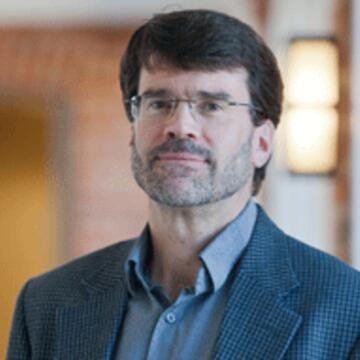'I'm not master of a damn thing'
Lyndon Johnson’s withdrawal from the 1968 presidential campaign
President Joe Biden’s decision to step aside as the Democratic Party’s 2024 presidential nominee inevitably leads to comparisons with Lyndon Johnson’s withdrawal from the party’s 1968 nomination contest. The analogy is not perfect: Johnson made his announcement in March, not July; he had not yet secured the nomination, although he was the party’s likely candidate; in 1968, the nomination process relied on party officials, rather than delegates chosen by primary voters; Johnson’s withdrawal had little to do with his age, although health may have been a background concern; Johnson’s action also preceded, rather than followed, attacks by assassins on other candidates and leaders.
Finally, open opposition to LBJ’s nomination had emerged within the party, in the form of challenges first by Senator Eugene McCarthy of Minnesota and then – following McCarthy’s stronger than expected showing in the New Hampshire primary – by Senator Robert F. Kennedy of New York. As the brother of the slain president and as Lyndon Johnson’s most bitter rival, Kennedy presented a potentially formidable threat.
Such differences aside, though, Johnson’s 1968 decision is one of only two cases in U.S. history that we have available for comparison (President Harry Truman in 1952 is the other). As such, exploring Johnson’s reasons for leaving the race can help us grasp the gravity of such a decision, as well as the cross-cutting pressures that might motivate a president to end his career voluntarily. The secret White House Recordings provide a rich source of insight into such questions, helping us go beyond easy assumptions that division over Vietnam or fears about his political prospects forced LBJ’s hand.
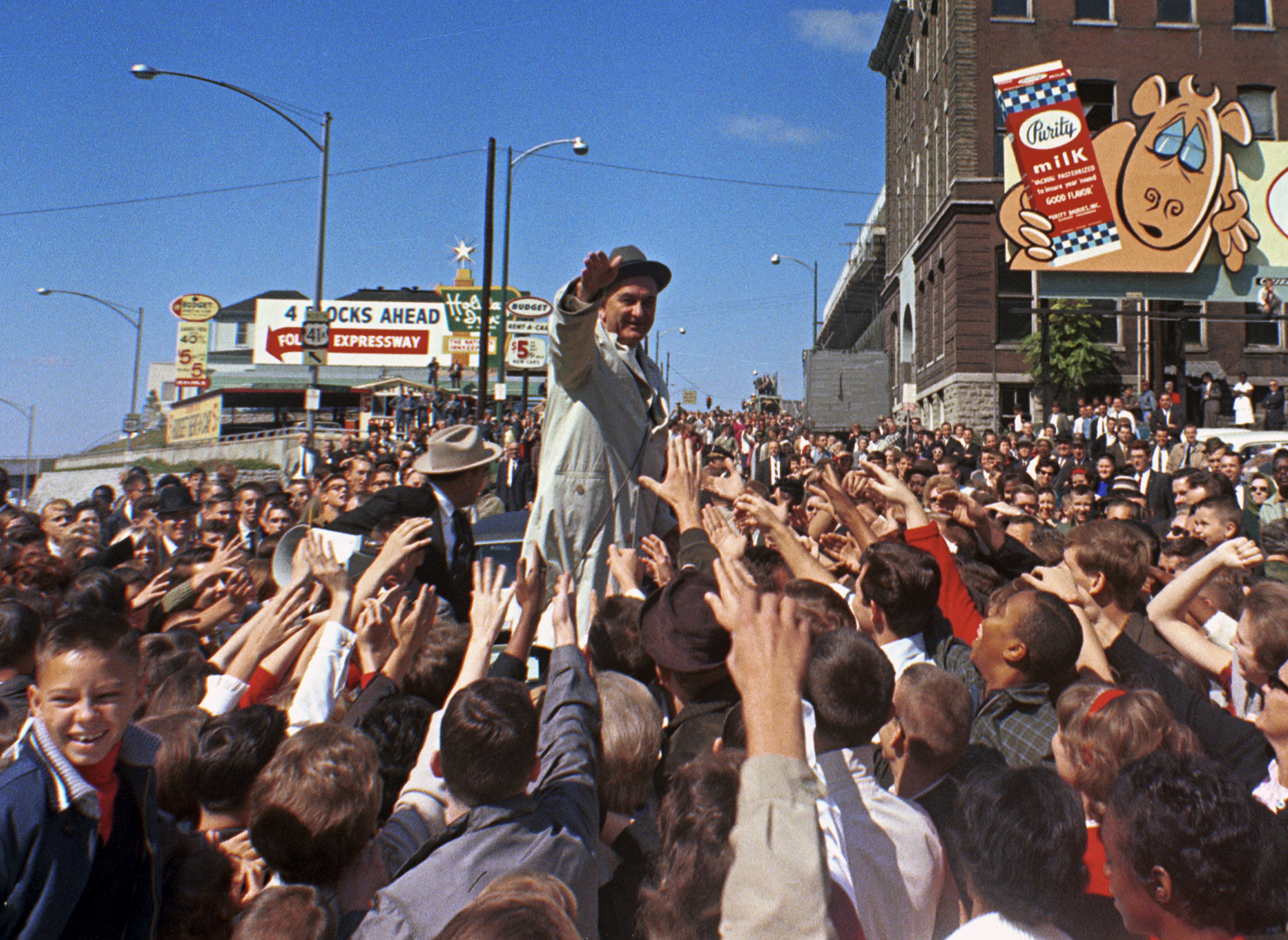
What the tapes reveal is that while Johnson feared that Senator Robert F. Kennedy’s insurgent campaign might gain momentum, he had received recent reassurances that most key party officials remained loyal and that his prospects for winning the nomination were strong. In the days leading up to his March 31 announcement that he would leave the race, however, frustration over the stagnation of his domestic agenda drove Johnson’s decision process.
A Miller Center exhibit from 2018 captures the full set of recorded conversations that bear on LBJ’s withdrawal: Four key conversations, though, capture the critical moments in the process. A final conversation captures a human element among these momentous events.
On March 22, in a call with Senator Richard Russell [D-Georgia], President Johnson expressed concern about the momentum that Senator Robert F. Kennedy had generated since declaring his candidacy on March 16:
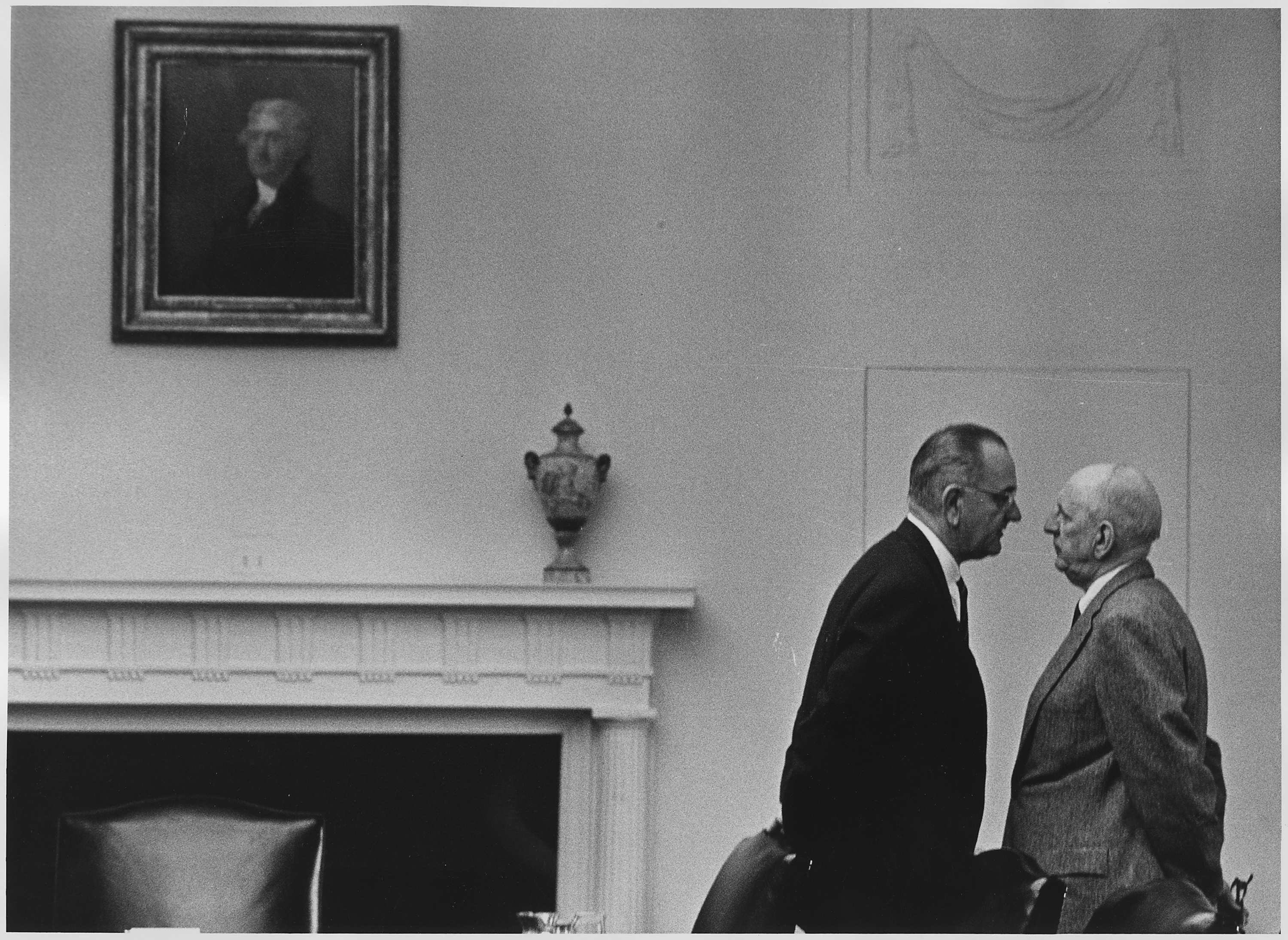
President Johnson: Now, [Robert F.] Bobby [Kennedy] [D–New York] is storming these states and these governors and switching them and switching the bosses all over the country, and a pretty blitz, ruthless operation. "If you don't do this, I'll defeat you." And he's doing it with candidates for the Senate and things of that kind . . . . there's been a great shift of sentiment, unless I'm misinformed, from what I see in the wires and the letters. Just nearly everybody since he got in and started speaking to these student groups around the country, just thinks we've played hell and we ought to get out right quick. It's the worst thing I've ever seen.
Russell: [Coughs.] Well, I . . . I don't think everybody does by a whole lot.
President Johnson: No. No, but I think there's been a good shift of sentiment is what I'm saying.
Johnson’s mood, however, was far from constant. Just a day later, he suddenly seemed confident about his prospects against Kennedy in a conversation with Chicago Mayor Richard Daley:
President Johnson: You and [New Jersey Governor Richard J.] Dick Hughes and Pennsylvania and Texas, and I don't think we'll lose a single mountain state or a single southern state. And I think that—I counted the congressmen last night. We have 160 and he has 8, [Daley acknowledges] and they're from Massachusetts and New York, and most of them are real extreme reform left-wingers . . . . what we've got to do is this: we've got to have four men kind of be my board of directors, run this country. We got to get you and Dick Hughes of New Jersey, who is just as solid as a rock. We've got to get [Mayor Joseph M. "Joe"] Barr and [Mayor James H. J.] Tate of Pittsburgh and Philadelphia. We were there yesterday, and they're just as solid as a rock. And if we can take—we've got Ohio at the moment; he's trying to buy it off, but we—if we can take Ohio and Illinois, Pennsylvania, and Texas, and New Jersey—
Daley: Hell, we're in.
President Johnson: —well, that's all of it, that's all of it.
Daley: I think it'll be a landslide.
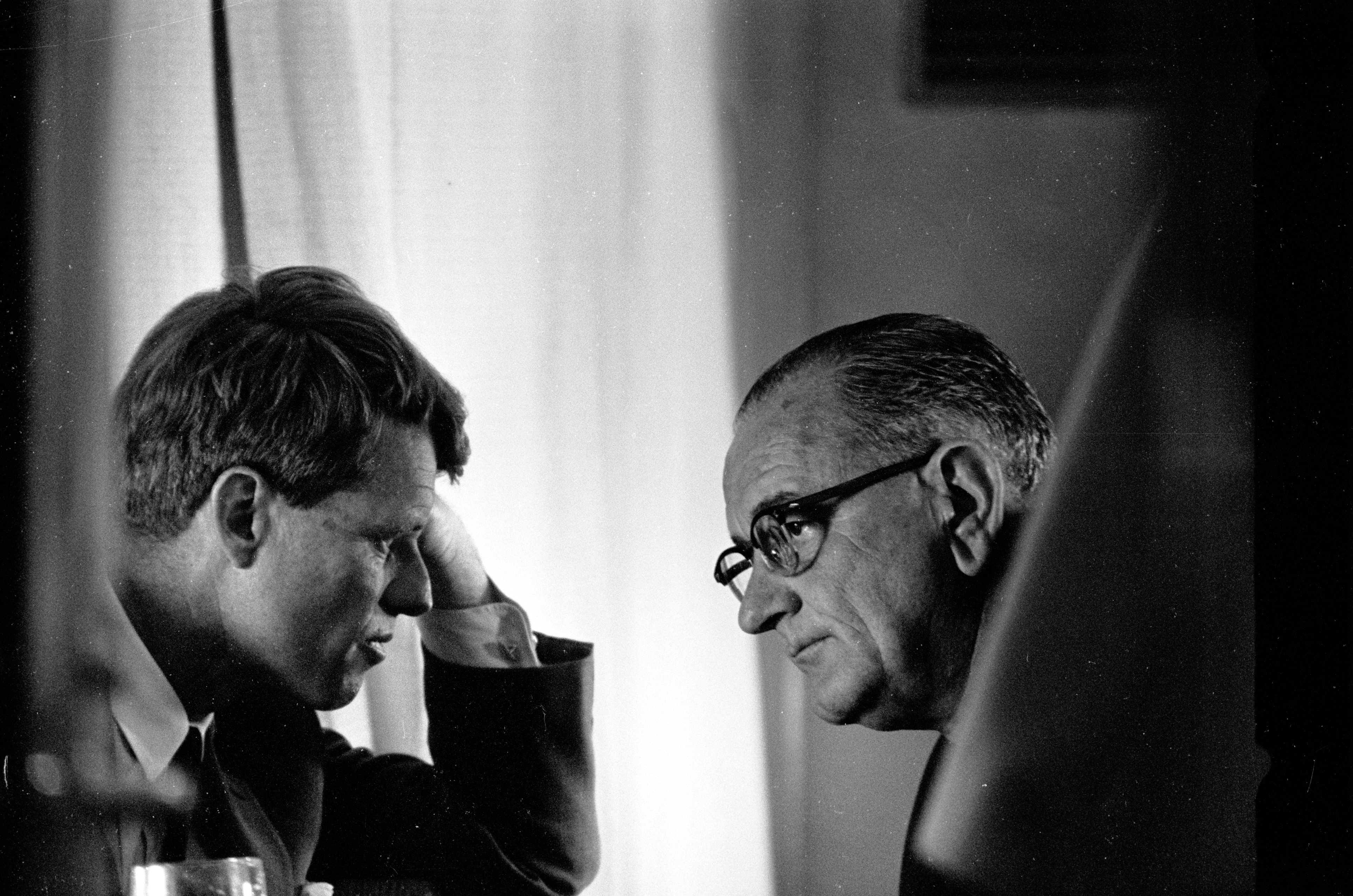
"I'm not master of a damn thing"
By March 24, President Johnson’s confidence had faded. Faced with looming budget shortfalls, driven by spending for the war and the Great Society, LBJ felt that he had to secure a 10 percent federal income tax surcharge. Conservatives in Congress, though, refused to support the tax increase unless Johnson agreed to cut domestic spending. Doing so, however, would ignite a rebellion from liberal Democrats (including Kennedy) who were calling from dramatic increases in spending on the cities. In a conversation with Secretary of the Treasury Henry H. "Joe" Fowler, LBJ expressed his growing sense of political weakness.
Fowler: Well, you hear, of course, from this constituency. And I know it's there. I know the concern about it. Of course, the constituency I hear from is just all the other way. And [Richard M. "Dick"] Nixon is preparing a blast for a speech on fiscal responsibility to tear the hide off.7 He's going to make a major issue of it.
President Johnson: I think that's right. I sure think he's there. [Fowler attempts to interject.] And I think that it's right with the Congress. It's not because we haven't—we can't make them do it. We've been abandoned.
Fowler: Well, you see, however, the—as I've told you, the trap that—the plan that Williams has made is to point out that you've got two-thirds of the Senate. You are the master of the Senate and always have been.
President Johnson: That's not—I'm not master of a damn thing. I haven't got anybody—
. . . .
President Johnson: These 32 [senators] that you're talking about, and when you add 22 more with them, which you're likely to, they'll just murder us. They'll say we took the baby's milk. We took these things. I don't mind cutting space and supersonics and stuff like that, but when you go to moving into this poverty area, they're already screwing me. They just murder me every day.
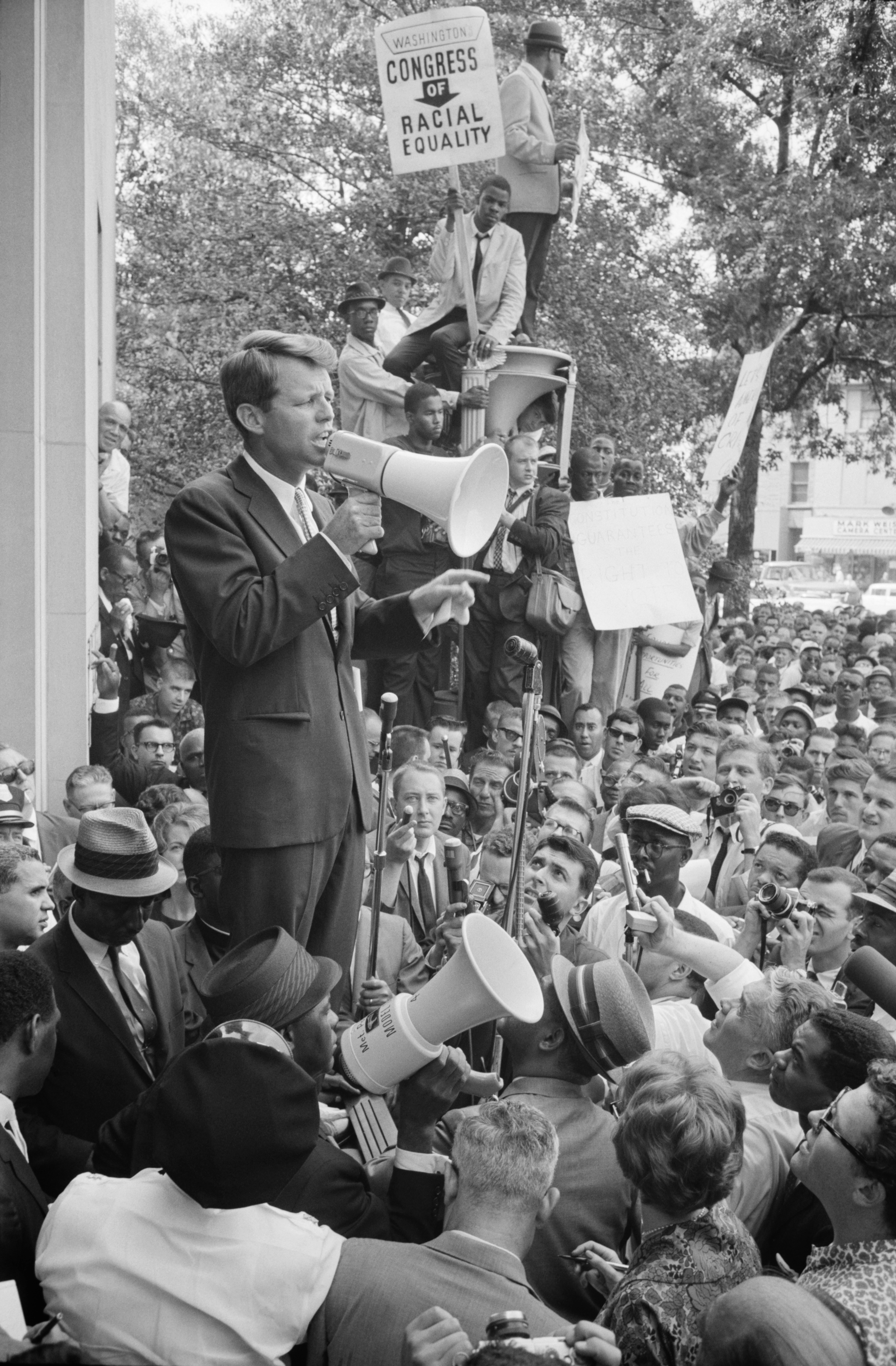
Shortly later, a call with House Ways and Means Committee chairman Wilbur D. Mills of Arkansas about the tax surcharge bill further deepened the President’s despair about his ability to advance a policy agenda—and to maintain the political support necessary for a campaign:
President Johnson: If you can't—if you don't think the country's going to hell, why, then, maybe it's not. Maybe I'm wrong. But I think it is. I think we're in the most dangerous thing I ever saw in my life, and I think it's going to blow right in our face and ruin all of us. And all of us go down together. And I may go down anyway, but all of us on this. I really honestly think that, and I don't think that I can take the lead in wrecking my programs. I just don't believe I can. I just don't believe I'll have any support. I don't think the southerners like me to begin with. I know damn well the Republicans are not going to like me. And if I run off all the regular Democrats, I'm in a hell of a shape. And I know what [Richard J.] Dick Hughes will do, and I know what [Richard J.] Dick Daley will do, and I know what Ohio and Pennsylvania and [Joseph M.] Joe Barr, head of the Mayors' Conference in Pittsburgh, will do.11 And if I just go out here and say I'm going to do it, I know what Meany will do. And that's about all the support I got left. And I sure as hell don't want to make you mad, and I . . . you and [Mike] Mansfield [D-Montana] and [Carl B.] Albert [D–Oklahoma] are kind of my leaders. And hell, if I ain't got you, I ain't got any leaders. I'm just a coach without any halfbacks out there on the field. I just tell them, "Go run play 29," but there ain't a damn human to pick it up. So, I can't win a game under those circumstances. Now, tell me what the hell to do.
Mills only advice was to wait a few weeks in the hope that the situation would improve.
President Johnson did not record another call until the night of March 31, after he had stunned the nation with his announcement that "I shall not seek, and I will not accept, the nomination of my party for another term as your president."
The conversations highlighted here demonstrate that Johnson left the race not just because of Vietnam or the challenge posed by Robert F. Kennedy, but also because of his inability to make progress on his domestic agenda. The tax surcharge bill represented the broader problem that fiscal woes brought on by the war had placed the expansion, or possibly even the continuation of the Great Society impossible. That agenda lay at the heart of Lyndon Johnson’s motivation to seek the power of the presidency. Deprived of the ability to advance it, he had little reason to continue.
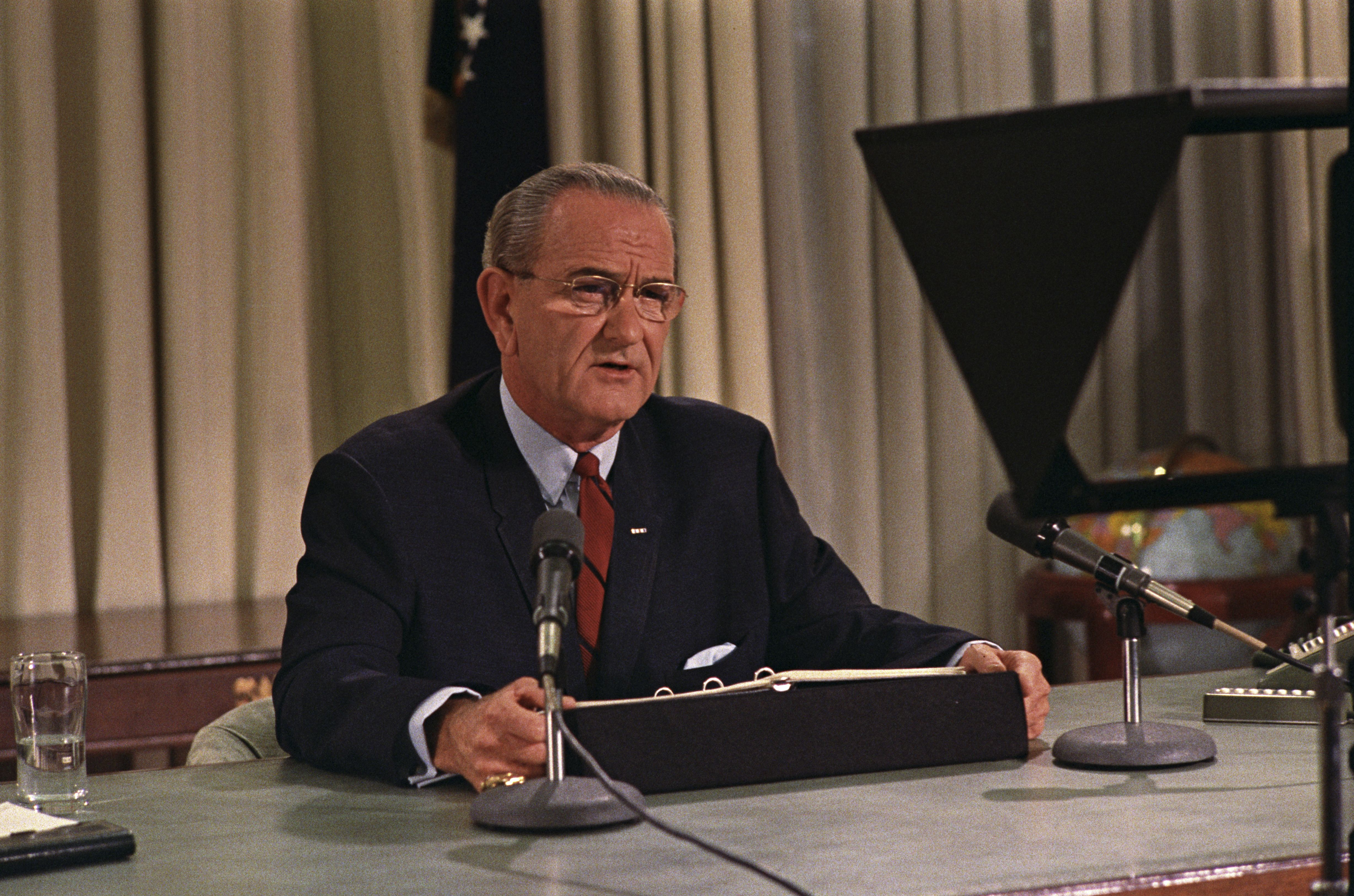
"Our friendship was never severed"
Following the televised statement, President Johnson received a call from Abigail McCarthy, the wife of Sen. Eugene J. "Gene" McCarthy [DFL–Minnesota] whose surprisingly strong showing in the New Hampshire primary had spurred Kennedy into the race and raised doubts about Johnson’s candidacy. Shocked in the aftermath of the President’s statement, Abigail McCarthy wanted to talk not about politics, but about reconnecting to Johnson in a way that went beyond politics:
Abigail Q. McCarthy: Mr. President?
President Johnson: Yes.
McCarthy: This is Abigail McCarthy.
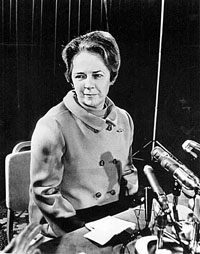
President Johnson: Oh, Abigail, how are you?
McCarthy: I am fine, Mr. President, but I am overcome with emotion, really. I don't see how you could have done this.
President Johnson: [speaking softly] Well, I just thought we had to do it because there's so much at stake that one little person like me doesn't—
McCarthy: You know you aren't one little person, Mr. President.
President Johnson: [Slight chuckle.] Well, I've got nine months now to do nothing except—I won't spend one moment doing anything except trying to find peace, and I thought that I—it was—I just thought I had to do it.
McCarthy: Well, I just want to tell you, you have my affection and respect, and I want you to tell Lady Bird [Johnson] how much I love her.
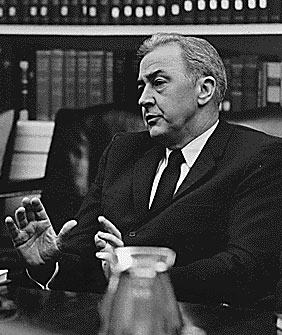
President Johnson: I sure will, dear, and I think it's awfully nice of you to call.
McCarthy: Well, I'm just—you know, I can hardly talk.
President Johnson: Well . . .
McCarthy: I mean, I remember another time like this with Mr. [Harry S.] Truman. And, Mr. President, really, that was—you know, it—it's just shocked us to our feet here, you know?
President Johnson: Everything—everything will be better, and we'll have a lot of time to devote to what's really important. And after 37 years, you learn what is important. And the—I've just—I—
McCarthy: You know, Mr. President—you know, basically our friendship was never severed.
President Johnson: I hope not. I hope not.
McCarthy: Yes.
President Johnson: I don't want it to be.
Although initiated by Abigail McCarthy, this final call represented a tentative rapprochement between intra-party rivals. It will be interesting to learn, in future memoirs and oral histories, whether Joe Biden has begun such a process of reconciliation with those called on him to step aside in the summer of 2024.
Learn more about Lyndon B. Johnson or listen to our collection of tapes.
